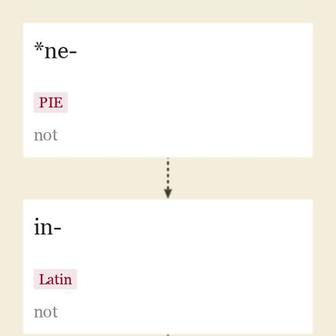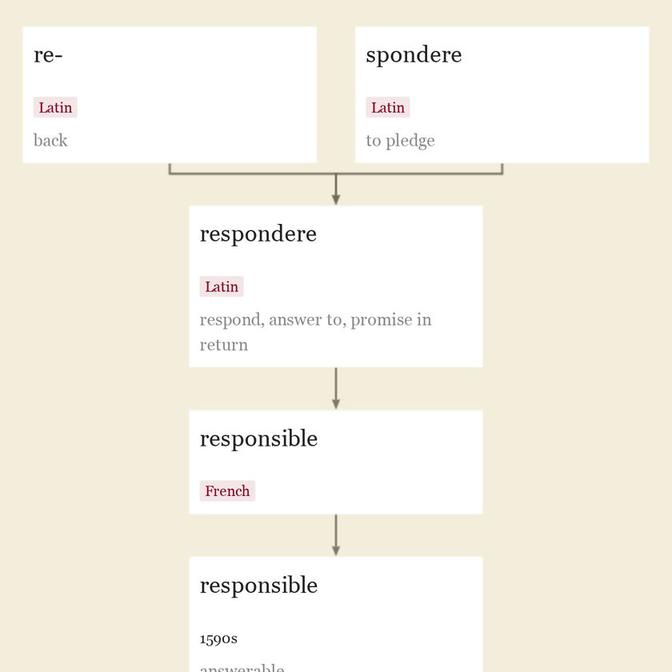irresponsible (adj.)
1640年代,“不对行为或行动负法律责任”,源于 in-(1)“不,相反”和 responsible 的同化形式。意思是“没有责任感地行动”来自1680年代。相关词汇: Irresponsibly。
最早记录年份: 1640s
irresponsible 的相关词汇
in- (1)

这个词缀的意思是“不,相反,没有”(也可以是通过与后面的辅音音节化的 -n- 的同化而来的 im-, il-, ir-,这种趋势始于后期拉丁语),源自拉丁语 in- “不”,与希腊语 an-,古英语 un- 同源,均来自 PIE 词根 *ne- “不”。
在古法语和中古英语中,通常使用 en-,但大多数这些形式在现代英语中已经不再使用,只有极少数(例如 enemy)不再被视为否定的。在英语中的经验法则是,对于明显的拉丁语元素使用 in-,对于本土或本土化的元素使用 un-。
responsible (adj.)

“应对自己的行为,对另一个人负责,对所做的行为或其后果负责”,1640年代,源自过时的法语 responsible(13世纪,现代法语 responsable,仿佛源自拉丁语 *responsabilis),源自拉丁语 respons-, respondere 的过去分词词干“回答,回应,承诺回报”,源自 re- “向后”(参见 re-)+ spondere “保证”(参见 sponsor(n.))。
“可靠的,值得信赖的”意思来自1690年代。它保留了拉丁动词中“义务”的意义。相关词汇: Responsibly。
With regard to the legal use of the word, two conceptions are often confused — namely, that of the potential condition of being bound to answer or respond in case a wrong should occur, and that of the actual condition of being bound to respond because a wrong has occurred. For the first of these responsible is properly used, and for the second liable. [Century Dictionary]
关于该词的法律用法,经常混淆两个概念——即,可能被迫在发生错误的情况下回答或回应的潜在条件,以及因发生错误而被迫回应的实际条件。对于第一个条件,应适当使用 responsible,对于第二个条件,应使用 liable。[世纪词典]
irresponsibility (n.)
1767年; 参见 irresponsible + -ity。